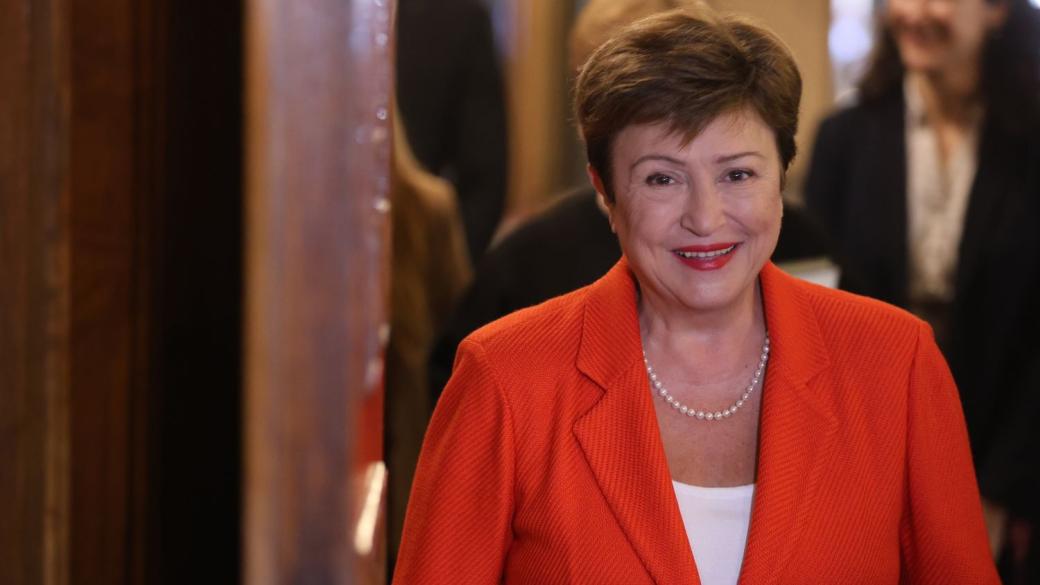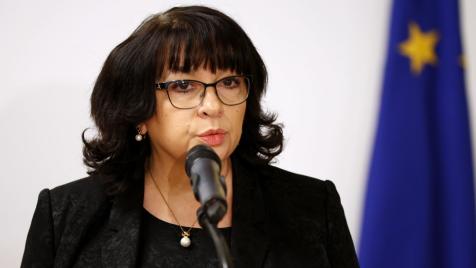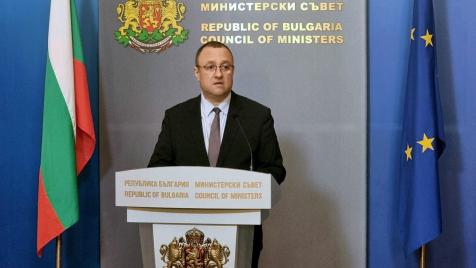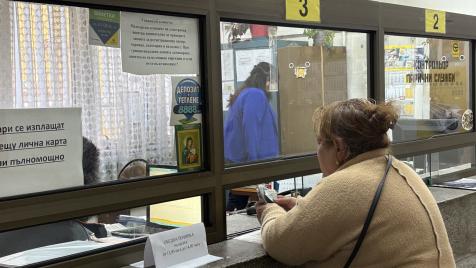Kristalina Georgieva: The eurozone will protect Bulgarians in our changing world
According to the managing director of the IMF, the euro will improve Bulgaria's credit rating and thus its attractiveness to investors

© ECONOMIC.BG / BTA
Today's world is riskier, with more shocks and unexpected events. With the eurozone buffer, Bulgarians will be better protected.
This was stated by the Managing Director of the International Monetary Fund (IMF) Kristalina Georgieva in an interview with BNT, speaking about the benefits for Bulgaria from the introduction of the single European currency.
If we want to be highly attractive to investors, as part of the eurozone, we can expect our investment rating to go up. This means more money and jobs in Bulgaria, as well as potentially lower interest rates," she said.
She also pointed out that Bulgaria will now have a voice at the negotiating table (editor's note: she is probably referring to the decisions taken by the European Central Bank on interest rates) and will now vote when decisions affecting our country are taken.
No worries
Georgieva also touched on the topic of inflation caused by the euro.
Don't worry,” she told Bulgarians.
She cited data from other countries showing that, yes, there are speculative attempts, but “when the state is in place and cracks down on those who try to abuse people's trust, this is a temporary phenomenon.”
A well-chosen moment
Georgieva explained that Bulgaria is joining at a good time, when the US is stepping back from its traditional leadership role, creating a “vacuum” and space for Europe to be more attractive for investment and for its role in the global economy.
For the eurozone, this is an opportunity for the euro to increase its presence in global financial markets. It is an excellent opportunity for Bulgaria to be part of the eurozone at this very moment," Georgieva added.
Truly prepared
In an interview with BNT, Valdis Dombrovskis, European Commissioner for Economy and Productivity, as well as for Implementation and Simplification, said that Bulgaria's preparation for the euro “has been going on for many years,” and that its accession to the Exchange Rate Mechanism (ERM II) in 2020 was a “preliminary commitment.”
All this ensures that Bulgaria is truly prepared and that it is also prepared in macroeconomic terms and meets all the convergence criteria," said the European Commissioner.
However, he stressed that the focus is now on practical readiness—how dual pricing will be implemented, how exactly the transition to the euro will take place, and how prices will be monitored.
According to him, the news of the positive reports is good for Bulgaria, the eurozone, and the EU.
There are clear economic benefits for Bulgaria, such as reduced currency exchange costs, financial stability, lower interest rates, and therefore better opportunities to attract investment," Dombrovskis added.
The EC is also monitoring prices
With regard to price growth, the guest pointed out that the European Commission is also monitoring the process “very closely.” According to him, the expected effect on prices will be one-off, amounting to 0.1-0.3%.
In the medium term, this will be offset by savings, lower exchange costs and lower interest rates," Dombrovskis said.
Responsibility remains
Membership does not exempt countries from their responsibility for sound fiscal and macroeconomic policies,“ warned the European Commissioner.
He recalled that Bulgaria has such traditions and has the second lowest debt-to-GDP ratio in the EU, but ”it is important to continue in this matter."
This text was translated by DeepL.

 Simona Gotsova
Simona Gotsova 


